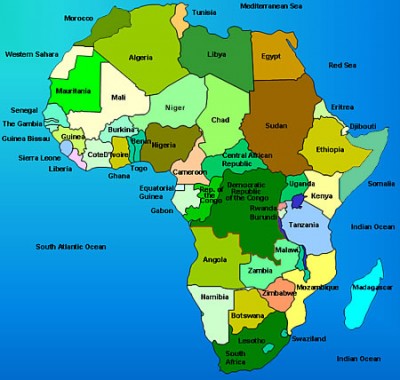Military coup in Niger

The military have carried out a coup in the West African state of Niger, ousting incumbent President Mamadou Tandja in this former French colony. According to a BBC report, troops burst into a cabinet meeting being held in the presidential palace on Thursday, February 18. They announced they were suspending the constitution and closing down the government apparatus. On Sunday, February 22, they declared they would change the constitution and hold elections, but have given no date.
The coup leaders issued an immediate curfew, but this was revoked the next day. Tandja and three of his ministers were arrested by the coup leaders. The coup follows Tandja’s bid to extend his presidency to a third term.
The soldiers carrying out the coup, led by Colonel Salou Djibo, have named themselves the Supreme Council for the Restoration of Democracy (Conseil suprême pour la Restauration de la Démocratie, CSRD).
Niger became independent from France in 1960, and has had several periods of military rule. Tandja won power in an election in 1999. This election followed a coup led by Major Daouda Wanke in which the then-leader of the military-led government, Ibrahim Mainassara, was assassinated.
Tandja was elected for a second term of five years in December 2004. Under the Niger constitution, the presidential holder is subject to a maximum of two terms. He would have been due to step down on December 22. In the course of his second term Tandja began pushing for a change in the constitution to allow him to stand for a third term. When in May last year the Niger national assembly refused to back his plans for a referendum to allow him a third term, he dissolved it. The following month he dissolved the constitutional court when it ruled that a bid to run for a third term would be illegal.
Tandja and his supporters in the Tazarche (Continuity) Movement argued he should be allowed a third term so that he could continue with his plans to build a dam across the Niger and maintain peace with the Tuareg, in the north of Niger. Tandja signed a peace deal with the Movement of Niger People for Justice (MNJ) in April 2009.
In August, Tandja went ahead with his referendum on a third term. The opposition boycotted it. But Tandja claimed that it gave him a mandate to continue as president. He held parliamentary elections in October. The opposition boycotted the process.
The Economic Community of West African States (ECOWAS) opposed the elections, suspending Niger from membership. The US had called on ECOWAS to impose full sanctions against Niger.
France and ECOWAS have condemned the coup. Initially, the foreign minister of Senegal, who was acting as an ECOWAS envoy, was prevented from landing in the country. He has since been admitted and has held talks with the new military junta.
Niger’s global importance is that it holds the largest uranium deposits in the world and is thought to have oil reserves. Despite these resources, Niger ranks 182 out of 182 countries on the United Nations Human Development Index—one of the least developed and poorest countries in the world.
For the last 30 years the French government-owned company, Areva, has maintained a virtual monopoly over Niger’s uranium reserves. It mines the Arlit and Akouta deposits, which produced over 3,000 metric tonnes in 2008. Areva also paid Niger $1.5 billion to develop the Imouraren deposit, which is expected to produce around 5,000 metric tonnes a year when it comes on stream in 2012.
France gets 40 percent of its uranium from Niger and 76 percent of France’s energy comes from nuclear power. Tandja “secured the discreet backing of French President Nicolas Sarkozy to extend his presidency for another term,” according to Africa Confidential. This followed the signing of a production deal with Areva earlier in the year. Sarkozy visited Niger’s capital Niamey in March last year.
France’s monopoly on uranium production in Niger is being challenged by China. It secured the right to prospect for oil in the Agadem oilfield in the east of the country near its border with Chad and in two uranium deposits at Azelik and Teguidda. As in so many areas of Africa, the arrival of China on the scene has caused a shift in power relations, meaning that France no longer has sole claim to Niger’s resources.
The political and military elite of this former colony now sees an opportunity to renegotiate deals for resources. Control of the government ensures access to big money from the uranium revenue and any future income from oil. The prospect of Tandja getting control of that wealth and consolidating his position at the expense of other factions of the elite has led to the coup.
So far the new junta has not shown itself hostile to French interests. Areva says that uranium production is continuing as usual. But if there were a perceived threat, France would not hesitate to intervene militarily. As Stratfor, an organisation with close ties to American security circles, has pointed out, France has forces in neighbouring Gabon, Senegal and Cote d’Ivoire.

